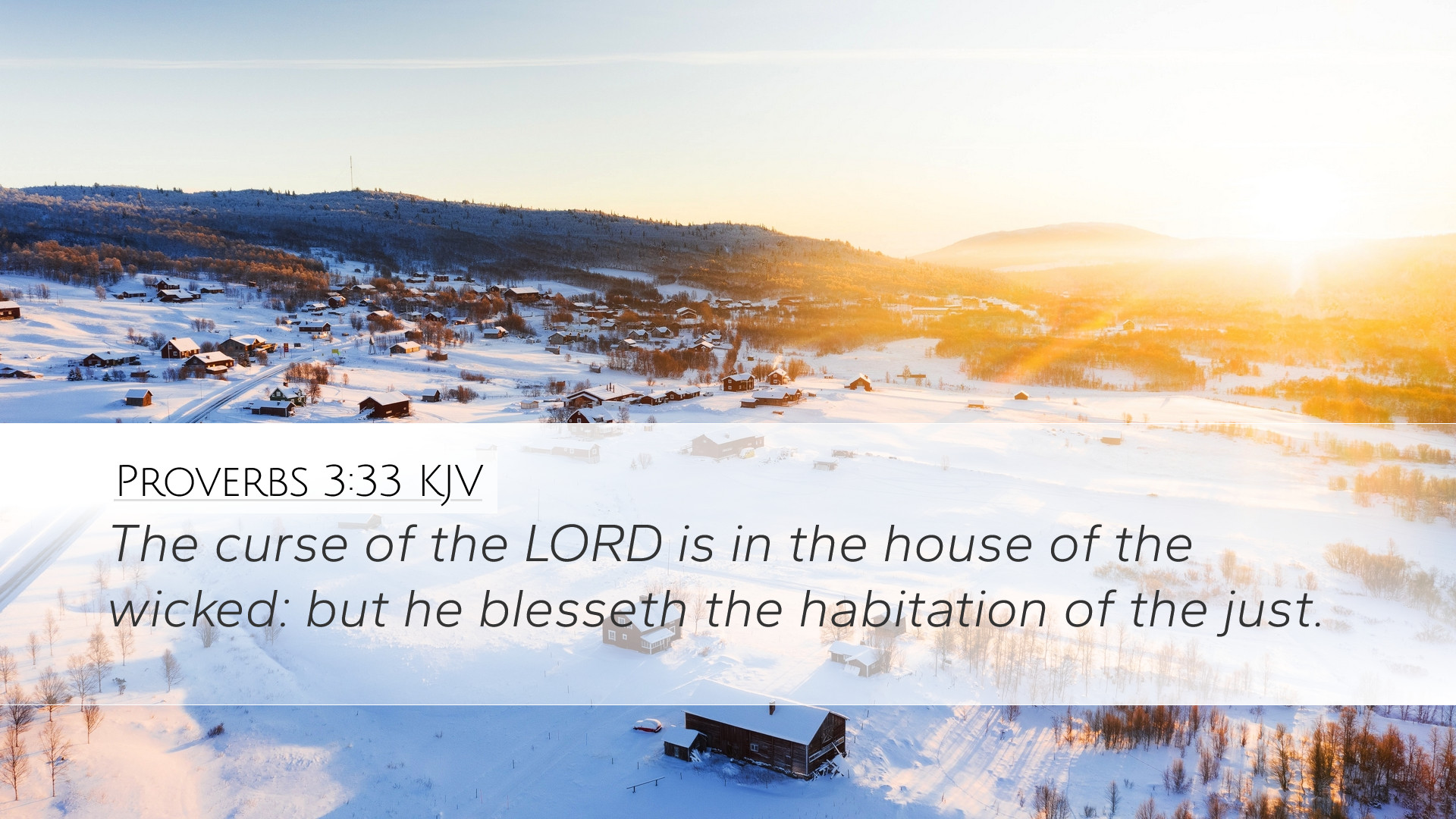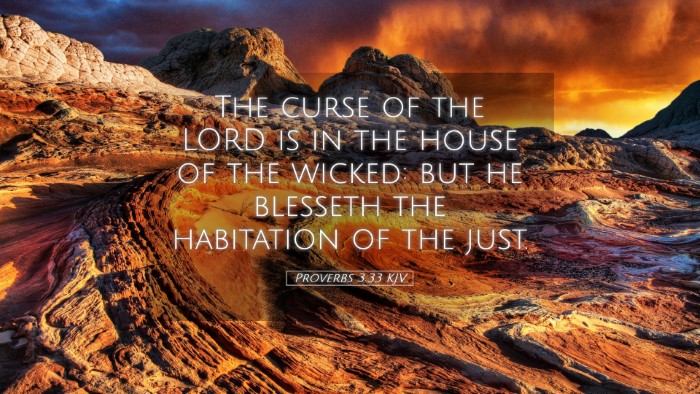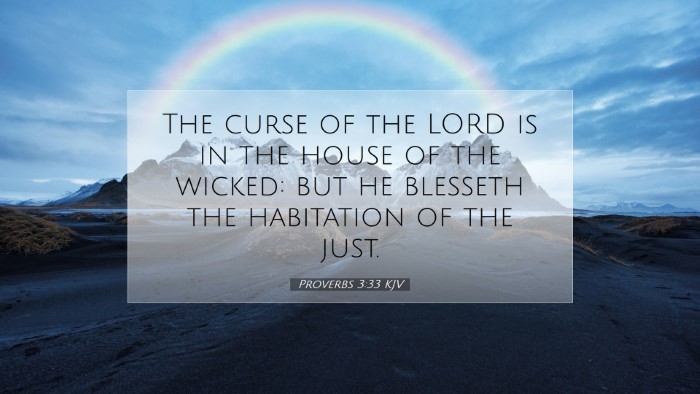Commentary on Proverbs 3:33
Proverbs 3:33 states, "The curse of the Lord is in the house of the wicked: but he blesseth the habitation of the just." This verse succinctly contrasts the fate of the wicked with the blessings bestowed upon the just. In exploring this passage, we draw insights from various public domain commentaries to unpack its profound implications for believers and seekers of wisdom alike.
Contextual Overview
The Book of Proverbs is a collection of wise sayings and teachings meant to impart knowledge and understanding. Proverbs 3 is particularly rich in themes surrounding wisdom, righteousness, and the moral order instituted by God. Within this chapter, the instructional tone emphasizes the consequences of one's choices, especially regarding the moral implications of wickedness versus righteousness.
The Curse of the Lord
"The curse of the Lord is in the house of the wicked." Matthew Henry notes that this "curse" signifies not just mere misfortune but includes divine judgments against those who live in rebellion to God's laws. It is important to recognize that the "house of the wicked" is not merely a physical space, but instead represents a condition of the heart and spirit that is aligned against God's holiness.
- Divine Displeasure: Henry describes how God's anger rests upon those who defy His commandments. There is a consistent theme throughout Scripture that unrepentant sin invites divine consequences.
- Symbol of Desolation: Albert Barnes interprets the house of the wicked as a symbol of desolation where peace, prosperity, and joy are absent. The curse manifests in various forms such as conflict, strife, and ruin.
Contrasting the Just
"But he blesseth the habitation of the just." In this phrase, the proverb shifts dramatically to highlight the divine favor encountered by those who lead righteous lives. Adam Clarke emphasizes the continuity of divine blessing which flows from a life aligned with God's will.
- Nature of Blessing: Clarke elaborates that the blessings for the just can encompass not only material provisions but also spiritual enrichment, peace of mind, and strong relationships. God’s favor translates into tangible benefits that outlast earthly trials.
- Character of the Just: The "just" are characterized by their integrity, reliance on God, and commitment to righteousness. Barnes points out that this righteousness is a fruit of wisdom, cultivated through a life of faith and obedience.
Theological Implications
This passage presents critical theological insights that speak to the nature of God as a moral being who actively engages with human behavior. The relationship between righteousness and divine favor suggests a covenantal framework where blessings are contingent upon obedience.
- God’s Sovereignty: The curse and blessings together affirm God's sovereignty over human affairs. He not only allows the consequences of moral choices but orchestrates them within His overarching plan.
- Moral Order: Proverbs emphasizes the moral order of life. The juxtaposition of the wicked and the just illustrates the principle that living contrary to God's design leads to inevitable ruin, while alignment with His will leads to flourishing.
Practical Application
For contemporary believers, this verse serves as a stark reminder of the path one chooses in life. It invites introspection regarding one's own "habitation" and asks critical questions of faithfulness, moral conduct, and relational integrity.
- Self-Examination: Consider the state of your own spiritual house. Are there areas where wickedness may have taken root? Engage in self-examination and seek the Lord’s cleansing.
- Righteous Living: Actively pursue justice and righteousness. Engaging in acts of kindness, integrity, and moral uprightness aligns with God's character and invites His blessing.
- Community Impact: Understanding the communal aspect of holiness reminds believers to seek the good of their household and community. The impact of individual choices can reverberate, shaping collective destinies.
Conclusion
Proverbs 3:33 becomes a powerful reminder of the consequences of wickedness and the rewards of righteousness. Engaging with the text allows pastors, students, theologians, and scholars to reflect deeply on the nature of their own lives, the alignment with God’s moral order, and the call to embrace righteousness as a pathway to divine blessing.
In the end, this verse illustrates not only God's justice but also His immense grace extended to those who seek to live justly. The faithful are encouraged to cultivate environments in their lives and communities that reflect God's blessing and favor.


